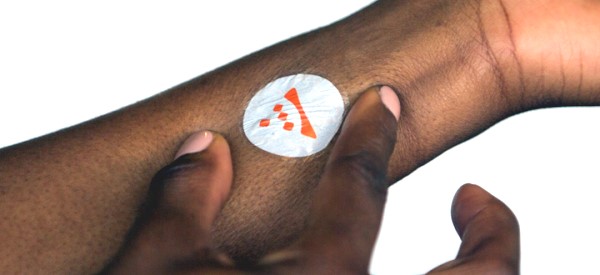
We’ve written about MC10 multiple times in the past. The Massachusetts-based company has made a splash with its flexible, thin sensor devices that can stick to a person’s skin. It includes near-field communications (NFC) capabilities that let it exchange data with a smartphone or other reader, and has the potential to deliver useful information for a variety of fitness, health, and medical applications.
Earlier this month, the company announced a partnership with PCH, a company that specializes in commercial production of products for companies ranging from startups to Fortune 500 corporations. Together, the two organizations are going to develop the Wearable Interactive Stamp Platform, or “WiSP,” to make it available to other brands for a variety of consumer applications. Our sister publication, Wearable Tech Insider, has covered the first application: a UV exposure sensor for L’Oreal. The companies envision other brands using the technology for applications ranging from event ticketing, cashless payments, room access, and even patient identification in hospitals and other clinical settings.
Wearable Health Tech devices have enormous potential, but the chicken-and-egg problem is getting past the initial prototype level and into mass production. This will drive broader adoption and drive down unit costs to increase the benefits and shorten the time to a positive return on investment. This agreement between MC10 and PCH promises to help scale this technology rapidly.

